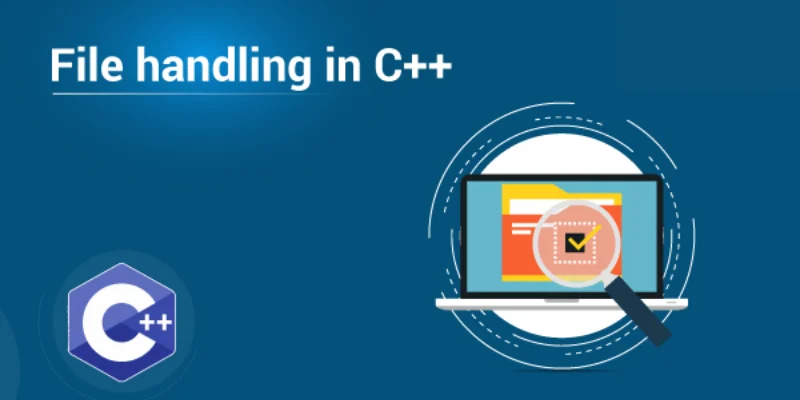
File handling is one of the most essential concepts in C++ programming. It allows developers to create, read, write, and modify files directly through code. Whether you’re storing logs, reading configurations, or processing user data, understanding file I/O in C++ is crucial. Enhance your programming skills and gain hands-on experience by enrolling in C C++ Training in Chennai, guided by industry experts with placement support. In this blog, we will explore how to handle the file in C++.
Basics of File Handling in C++
- C++ uses the <fstream> header for file operations.
- It includes three main classes:
- ifstream for reading from files.
- ofstream for writing to files.
- fstream for both reading and writing.
- Always include the #include <fstream> header in your program.
- Use the is_open() function to verify successful file opening.
- Common file extensions are .txt, .dat, etc.
When working with file code, issues like missing files or failed writes are common. Understanding what is debugging in C can help identify and resolve such problems easily.
Advance your database skills with an SQL Course in Chennai, designed to help you manage databases efficiently through expert training and placement support.
How to Write Data into a File
- Use the ofstream object to open a file in write mode.
- Syntax: ofstream file(“filename.txt”);
- Check if the file is open using file.is_open().
- Use the insertion operator << to write content.
- Always close the file using file.close() after writing.
If your file doesn’t save properly, it’s time to use debugging in C to check for syntax errors, wrong file paths, or permission issues.
How to Read Data from a File
- Use the ifstream class to read from files.
- Open the file in read mode: ifstream file(“filename.txt”);
- Use a loop with getline() to read content line by line.
- Review if the file was successfully opened before reading.
- Close the file once reading is complete. C++-skilled individuals can enhance their careers by acquiring knowledge of embedded systems through Embedded System Courses in Chennai, which offer placement assistance.
Use a well-structured debugging program in C to explore file handling and case-control logic in C programming.
Understanding File Modes in C++
- You can open files in different modes using flags:
- ios::in – read
- ios::out – write
- ios::app – append
- ios::binary – binary mode
- Combine modes using the | operator.
- Example: fstream file(“data.txt”, ios::in | ios::app);
Using incorrect modes may cause logic errors. Applying debugging techniques in C helps verify that the correct file access methods are used.
Why Debugging is Important in File Handling
- File operations are prone to runtime errors and logic bugs.
- Common issues include:
- Trying to read a non-existent file.
- Forgetting to close the file.
- Writing to a file that’s read-only.
- Debugging in C allows you to trace and fix these problems quickly.
- Use print statements or logging to check file object states.
Explore the importance of memory management in C++ to build efficient, high-performance applications and avoid memory-related issues.
Helpful Debugging Techniques for File Handling
- Use gdb or similar tools for step-by-step code analysis.
- Insert print statements to validate file open/close status.
- Test each file function (read/write/append) individually first.
- Use default sample files during testing to avoid file-not-found errors.
- Always check file path validity and permissions.
Practising these debugging techniques in C improves your problem-solving skills and helps build more stable applications. Advance your career with flexible online and offline programs at a top Training Institute in Chennai.
Creating a Debugging Program in C
- Start with a small program that opens a file and writes a line.
- Gradually add reading, appending, and error checks.
- Simulate failures, such as missing files, to see how your program reacts.
- Print meaningful messages for each step in the file process.
Writing a debugging program in C is a great hands-on method to understand both file handling and error tracing.
File handling in C++ is a must-have skill for developers working with persistent data. By mastering ifstream, ofstream, and fstream, you can manage text and binary files efficiently. However, errors are common, and that’s where debugging in C becomes critical. Whether you’re a student or a working professional, mastering both file handling and debugging will take your C++ skills to the next level.
